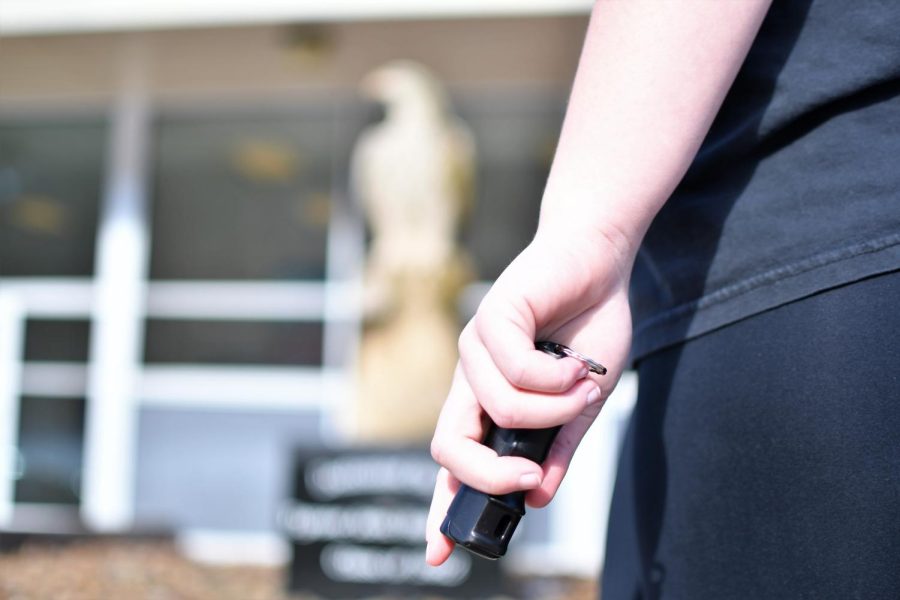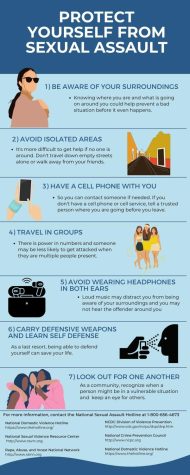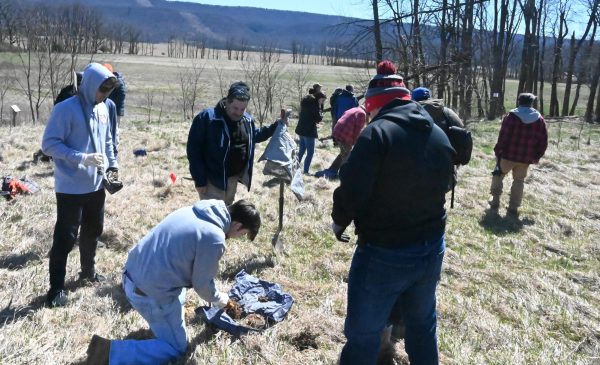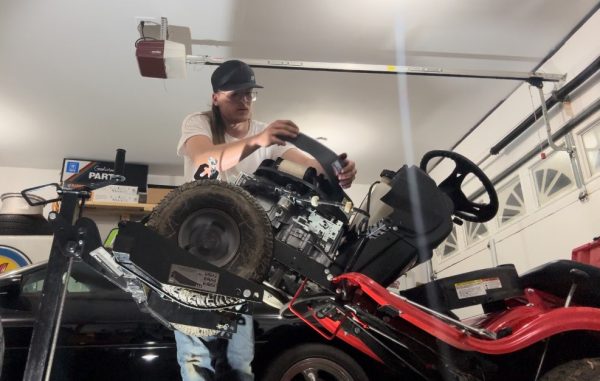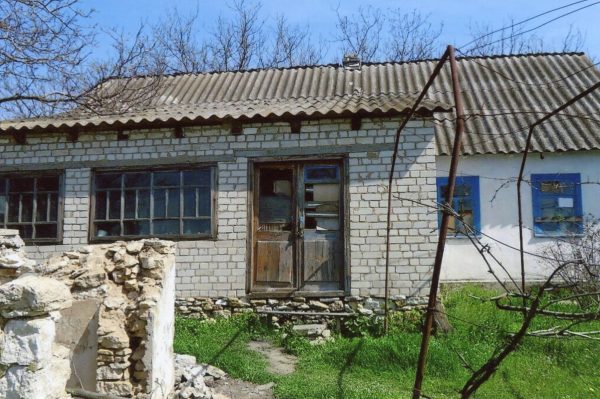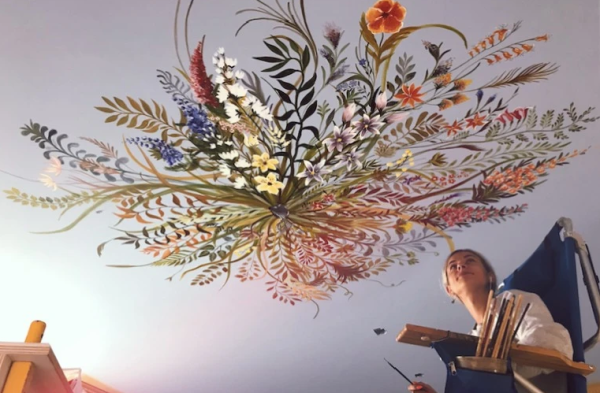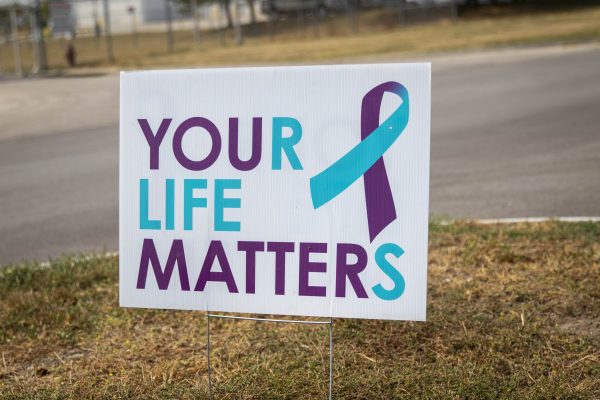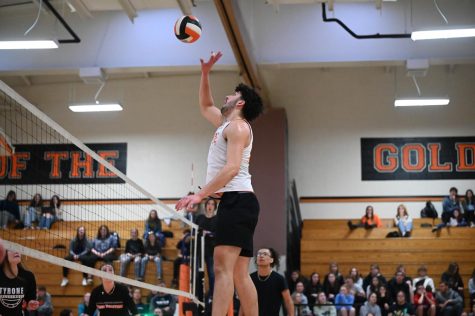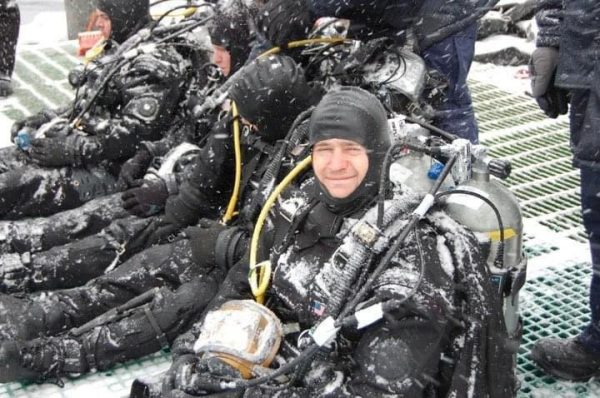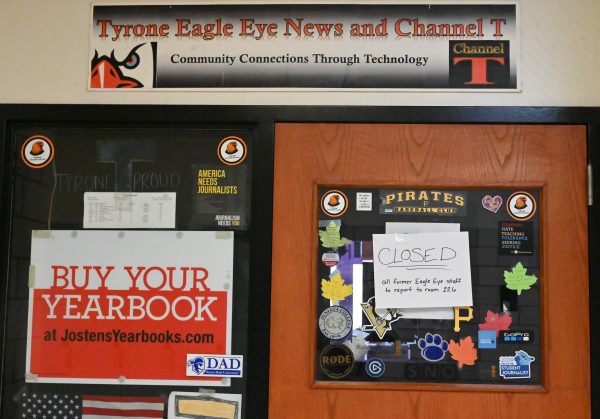“I was violated in so many ways”: Tyrone Teens Speak Out on Sexual Assault
A recent CDC survey found that the number of teen girls reporting sexual assault and harassment have increased 20% in the past several years.
Female students across the country, including Tyrone, have reported sexual harassments and assault.
The Centers for Disease Control recently released its bi-annual Youth Risk Behavior Survey and concluded that female youth across the United States are experiencing “record high levels of violence, sadness, and suicide risk.”
The report found that almost three in five girls in the United States said they felt “persistently sad or hopeless.” It was the highest rate seen by the survey in a decade.
The survey also said that 14% of teenage girls in the United States report personally experiencing some form of sexual violence, a 20% increase from 2017 to 2021.
Based on this national study, and in recognition of April being Sexual Assault Awareness Month, the Eagle Eye conducted its own anonymous survey of female students at Tyrone Area High School, asking some of the same questions in the national study.
The voluntary survey was sent via email to all female students in grades 9-12. Responses were received from 116 students, which is about 45% of the female high school population.
The results suggest that Tyrone youth are not immune to the national problem of sexual harassment and violence toward women.
One student shared her heart-wrenching story of sexual assault.
“I never thought someone who loved me so much would be the one to take advantage of me. I was violated in so many ways and lost my identity. I questioned, for years, what I could have done differently and what I could have done to make him actually care for me,” said one Tyrone female student.
Many respondents to the survey reported experiencing sexual harassment or assault, everything from catcalling to rape.
In the local survey, 54.3% of Tyrone female students (62 of 116) who responded said that they often do not feel safe in public, and 71.9% of respondents (81 of 116) said they have had at least one sexually inappropriate comment made to them outside of school.
One respondent said that when she was 16 and working at her part-time job, she bent down to change one of the trash bins when “a much older coworker, maybe thirty years old, made a comment about ‘how good’ I look bent down.”
Another respondent said, “a group of guys stopped me and tried to get me to have sex with one of their friends for money.”
Fifty-one percent (59 of 116) of respondents said that they have been sexualized or had sexual comments made to them in school.
“I was in class kinda hunched over a desk because that’s what my task required and a guy came up behind me and smacked my butt,” said one female Tyrone student.
One student said that she was not taken seriously after reporting an incident of sexual harassment to a coach.
“Students [at a sporting event] made horrible comments about my body, forced me to do things I did not want to do, and would not leave me alone for the duration of the event. I made my coach aware of the comments and actions that were directed at me, and I was told that they had bigger issues to deal with because the team had lost the game,” said one student.
Forty percent (47 of 116) of the respondents said that they have carried defensive weapons like pepper spray, tasers, or whistles to protect themselves in public.
The majority of respondents to the local survey said that women and girls are too often unfairly held responsible for sexual harassment because of their dress.
“The dress code, in my opinion, is stupid. We see each other in way less clothing over the summer and even on weekends…it is in no way, shape, or form preparing us for the real world, or even college,” said the student.
One respondent criticized the dress code for restricting self-expression and holding girls responsible for harassment instead of shifting the responsibility to males to control their own behavior.
“Instead of punishing us for wanting to be confident and proud in ourselves, teach men how to grow up and live civility in a humane society where they aren’t taking advantage of ladies. I’ve met plenty of men who I feel beyond safe and trustful around, I know they exist, so why do certain boys get exceptions,” said the student.
Another pointed out that women do not need to be wearing tight-fitting or revealing clothing to be harassed. One respondent said when she was in Baltimore with her family, wearing just a hoodie and blue jeans, “a grown man took it upon himself to make a [sexually explicit] comment to me when we [my dad and I] were walking.”
Furthermore, several students said that girls should not be blamed or made to feel ashamed for their dress, especially when the acts that are being committed against them are illegal.
The National Child Traumatic Stress Network says that the reasons that women often do not report sexual assault are because of emotional pain, shame, and feeling partly responsible. Other reasons include thinking they will not be believed, feeling they will be blamed, and worrying that nothing will be done.
Anyone who is sexually assaulted should feel they can report the event, that they will be believed, and something should be done, said one respondent.
One student described a situation that she had where someone put their hands around her neck and pulled her hair. They told her that they wouldn’t let her go until she called him a “sexual word.”
Another student said that a male became violent with them for refusing an advance.
“I was walking home from work one night and a man kept catcalling me. When I walked away and didn’t listen to him, he threw his drink at me,” said the student.
Even when women seek help, men frequently become aggressive and violent toward others.
I never thought someone who loved me so much would be the one to take advantage of me. I was violated in so many ways and lost my identity. I questioned, for years, what I could have done differently and what I could have done to make him actually care for me
— A female Tyrone student
“I was walking alone and was followed continuously for three hours straight by a man who was whistling and making inappropriate comments toward me. Once I finally got someone to help me, the guy ended up swinging at the guy who was trying to help. Prior to the fight he stopped following me, but came back with a puppy saying he has more and that I should come back to his place and see them. He got visibly angry when I said no,” said one student.
One respondent said that boys in our society need to learn that “women are not property to be passed around or to be harassed. We are not obligated to owe you anything just because you are a man.”
“At work, men often come in and feel that they have the right to comment on my body, my work, or my looks. Though this bothers me, I have to be professional. I just have to smile and ‘take it as a compliment,” said one Tyrone High School student.
Almost all of the respondents feel that much more needs to be done both nationally and locally to address these issues.
Some suggested that education and awareness need to start at a younger age. Families and schools should teach children to respect everyone and that no one should be violated in any way.
The stereotype that the clothes someone wears or the background someone comes from should never be a reason to physically or emotionally assault them.
Victims should report harassment and assault and school officials, workplace supervisors, or police and reports should be taken seriously be thoroughly investigated.

This is Cassidy Miksich! She is a senior at TAHS and this is her first year in Eagle Eye. She is involved in many extracurricular activities at Tyrone,...

Fabria typically publishes the Teacher Of The Week articles here at Tyrone, but outside of her life in the Eagle Eye room, she enjoys spending time out...




